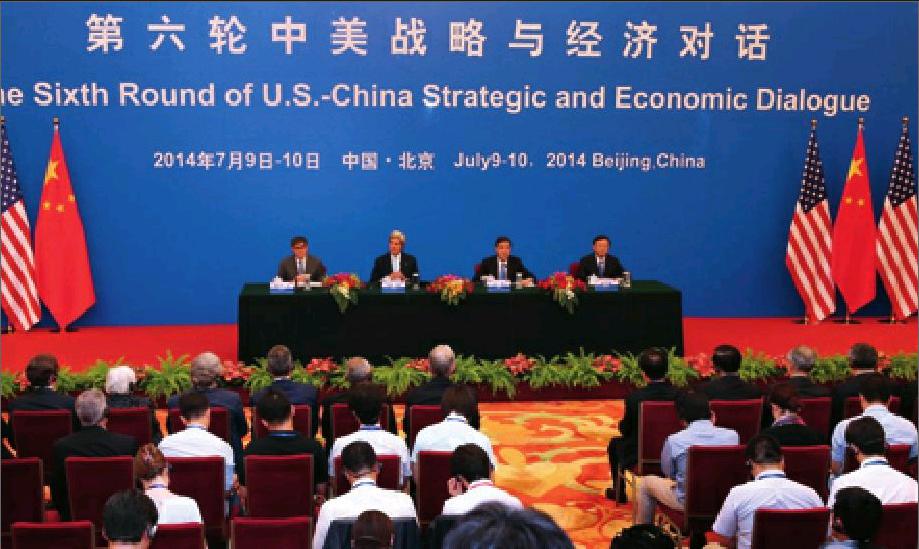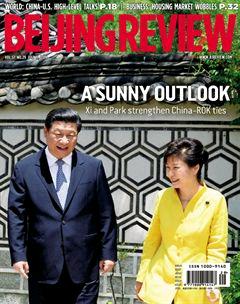Striking a Balance
By+An+Gang

As China-U.S. affairs hit a rough patch and the world economy struggles to recover through adjustment, the sixth round of China-U.S. Strategic and Economic Dialogue(S&ED) held on July 9-10 in Beijing was intended to boost confidence in bilateral relations.
Chinese President Xi Jinping and his U.S. counterpart President Barack Obama reached a consensus of building a new type of major power relationship featuring nonconflict, non-confrontation, mutual respect and win-win cooperation in June last year. The concept of a “new type of major power relationship” was designed to foster a positive vision for Sino-U.S. relations.
However, bilateral relations subsequently worsened in the following year, leading to “strategic distrust.” The Obama Administration attributed tensions between China and Japan, the Philippines and viet Nam over maritime territorial disputes to Chinas display of military power, accusing the latter of attempting to change the status quo and acting aggressively. China countered these claims by saying that the tensions were caused by provocative actions taken by these countries against China. From Chinas point of view, the United States appeared to deviate from its neutral position and took sides with countries that confronted China, encouraging their provocative actions.
As the Ukraine situation intensifies and relations between Russia and the United States deteriorate, the Obama administration has not diverted its strategic focus from the Asia-Pacific region. Rather, it has increased its rebalance to Asia by enhancing military deployment and forming alliances in the region. President Obama said the United States will lead the world for the next 100 years and will offer protection to its allies. Beijing has interpreted this as attempts to contain China by military measures and countering the socalled Chinese Monroe Doctrine.
Adding to the poor state of affairs, the United States has persistently accused China of infringing upon its cyber security, even after revelations of the U.S. secret surveillance program showed that the U.S. has organized massive wiretapping and surveillance activities against a number of countries including China. On May 19, the United States announced an indictment against five Chinese military officers for alleged cyber theft of U.S. corporate secrets. In response, China declared that it would call off a cyber-security team formed under the framework of the China-U.S. Strategic Dialogue, which was established upon the request of the United States with the purpose of avoiding conflict and carrying out cooperation on cyber security.

